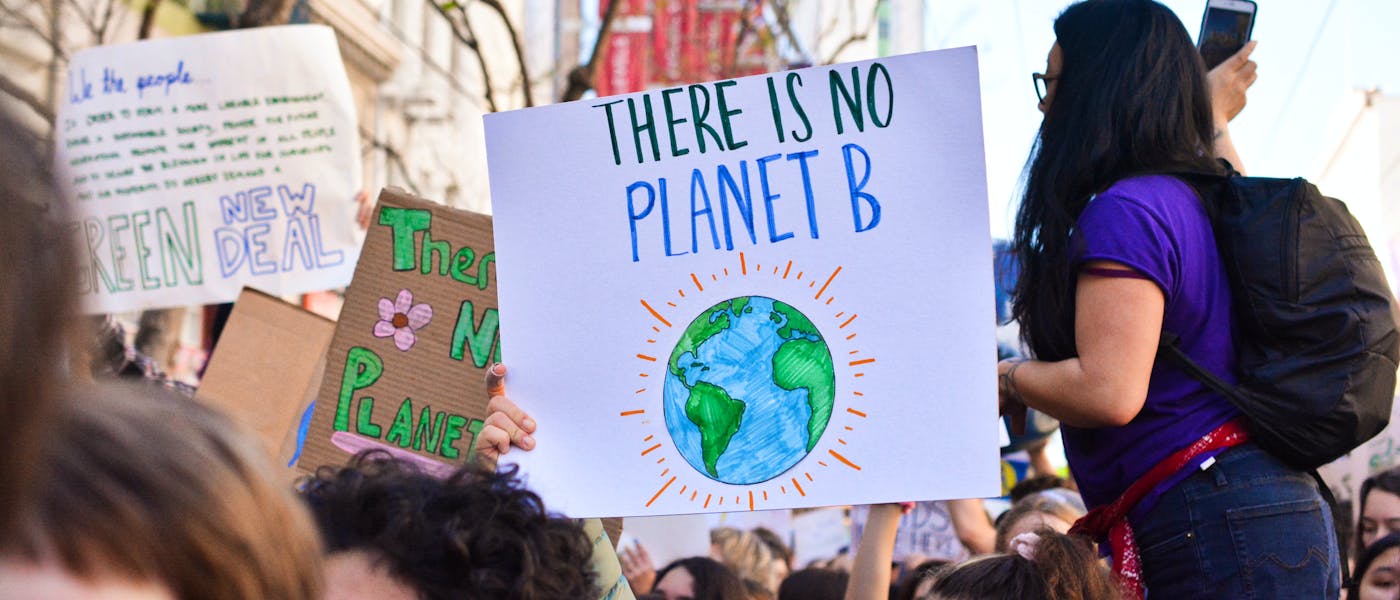The emergency facing our planet is, for many, a leading contributor to stress in contemporary life. The crisis is undeniably alarming, but rather than throwing our hands up in despair, there are steps we can all take to collectively fight back against human-inflicted damage to the earth. Meanwhile, there is cause for hope; at the time of writing, US scientists had confirmed a major breakthrough in nuclear fusion which, although hugely expensive and not a panacea to all the world’s ecological ills, remains an extremely promising breakthrough when it comes to the creation of abundant clean energy. We are taking that as a cue for hopefulness – all while we continue to play our part. These are just a few of the ways to do so; if we all adopt some of these habits, the cumulative effect will be powerful.
Invest In Renewable Energy At Home Or In The Workplace

It may involve an outlay, but for anyone who is considering switching to a heat pump or installing solar panels, both are investments worth making. Making the change not only reduces the environmental impact of the energy we use to power our homes; it also reduces bills. Greenmatch tells us, ‘Given the choice to commit to 10-15 years of fossil fuel emissions by installing a standard gas boiler, or installing a heat pump, which instantly reduces carbon emissions by around 80 per cent, it’s a choice which will have a significant impact on the environment. In addition, a heat pump will operate three times more efficiently than a boiler, so it can also save huge amounts of money on energy bills.’ Learn more here.
Reduce Food Waste

Did you know that almost a third of all food produced for human consumption goes to waste? That equates to 1.3 billion tonnes a year, all in landfill, as well as accounting for 10 per cent of greenhouse gas emissions. It’s a staggering number, and especially woeful considering how many people are going without amid a cost-of-living crisis. This dire picture means more landfill sites and it means the release of harmful toxins. But did you know that almost three quarters of that waste could be composted? Plus, there are a handful of brilliant movements and apps that help surplus food go where it should: into hungry mouths. One of our favourites is Too Good To Go, through which businesses can connect with locals and thus enable extras to swerve the bin and land up on plates instead. Meanwhile, on a more basic level, never underestimate the power of good planning and judicious shopping to get around this problem at a domestic level. Check out more useful apps in the fight against food waste here.
Buy Second Hand

Our grandparents were the make-do-and-mend generation. The children of the seventies and eighties, meanwhile, were no strangers to being dressed head-to-toe in hand-me-downs or jumble sale booty as they moved through childhood. We began to lose our way, however, with the rise of increasingly inexpensive, throwaway clothes that lead to buyers replacing rather than mending clothing or household items, or simply making them last. The cheaper goods still exist of course – and can be a godsend for people facing hardship brought on by the sky-rocketing cost-of-living (it is worth noting, though, that unbelievably low prices do tend to come at a cost: that of underpaid labour).

But thankfully, there is an ever-growing trend towards the pre-loved and the recycled. ‘Vintage’ goods have been gaining traction since the early noughties, but now, as the likes of eBay, Vinted, Depop, Poshmark, Rebag, Vestiaire Collective and ThredUp make shopping online for pre-loved goods easier and easier, it is predicted that the second-hand market will grow by 127 per cent by 2026. This is excellent news because it reduces the cost of manufacture hugely. And if you can buy local, you can also cut out delivery emissions too. A perfect way to save money, the environment – and hand beautiful things from generation to generation. Fast fashion be gone!
Cut Down Your Meat Consumption
Did you know that the grazing land needed for industrially produced meat takes up more than a quarter of the world’s land surface? And that if everyone switched out meat for plant-based food, that area would decrease by 75 per cent? Industrial meat production is the single biggest cause of deforestation, with many farmers setting forest fires to clear space for cattle grazing – and when forests are destroyed for meat, it becomes a huge contributor to global warming too, as billions of tonnes of CO2 are released into the atmosphere. In the act, it also destroys the natural habitats and eco-systems for many creatures native to the rainforest, whether thanks to clearing or to the use of pesticides.

The bottom line is that if we continue at this rate, the Amazon – the Earth’s lungs – will no longer be able to sustain itself. So, what can we do? Collectively, a lot. If the demand is no longer there – or at least substantially lessened – such practices would no longer have a place in the world. And every little helps. If you’d rather not give up meat and dairy products entirely, then why not choose to go meat-free for half the week? Even if you just chose one day a week to ditch animal products, that would still be a huge plus: it takes approximately 1,700 gallons of water to produce a pound of beef, whereas for the same amount of vegetables, just 39 gallons are needed. Do, then, make this the year you think consciously about what you eat. And do get inspired by the plethora of vegan and veggie cooks out there. Our favourite is the great Anna Jones, whose recipes you can find online here. A tip: you don’t need all the vegan meat substitutes which can be nutritionally questionable when there are so many great things you rustle up with humble, naturally produced veg – much of which costs pence.
Re-consider Your Beauty Regime

The ugly side of the beauty industry is that it is a huge offender when it comes to single-use plastic. It produces more than 120 billion units of packaging every year globally—much of which you cannot recycle. (It is a depressing truth that plastic recycling is largely a myth, with only 9 per cent of plastic items truly being recycled.) So, what can we do? The first rule is that no packaging at all is best. There is absolutely no need, for example, for shower gels when you can simply use bars of soap which served previous generations perfectly well. If you are buying your product in plastic, try to ensure that the items can be refilled. Better still, opt for products that come in glass or metal containers, since they are infinitely recyclable materials. And why not make 2023 the year that you have a stab at making some of your own beauty products rather than paying vast quantities for lotions and scrubs whose packaging is destined for landfill?
Work From Home If You Can

One of the small handful of positive things to emerge from the pandemic was the proof that, for many businesses, having employees work from home was not the disaster they might previously have imagined. As well as enabling employees to live anywhere they like and still make a living, it also reduced carbon emissions thanks to fewer cars on the road. Additionally, do think about your car use: do you need to drive? Could you catch a bus or a train? Car-pool? Walk or cycle? Convenience can be wonderful, but we will all have to make some sacrifices if we are to change the course we’re currently on. If you’re keen to make the move to home working, do check out these apps, which can be extremely helpful when you’re not physically with your team on a daily basis. Check them out here.
Choose Eco Friendly Or Home Made Cleaning Products

Many standard cleaning materials that we use in domestic settings contain harsh chemicals. Aside from being harmful to us (VOCs released contribute to chronic respiratory problems, allergic reactions and headaches), many of the toxins are then washed into rivers and streams, entering the food chain and thus doing harm to whole eco-systems. And yet it is easy enough to make our own – all you need is vinegar, baking soda and lemon juice (you can always add essential oils to make the house smell amazing). But if making your own feels like a nice idea but realistically unlikely to happen, do buy from brands such as Tincture, whose ‘award-winning cleaning and home products are 100 per cent natural, non-toxic, antiviral, antibacterial, sustainably sourced, biodegradable and free from harmful toxic chemicals’. Shop the range here.
By Nancy Alsop
January 2023





